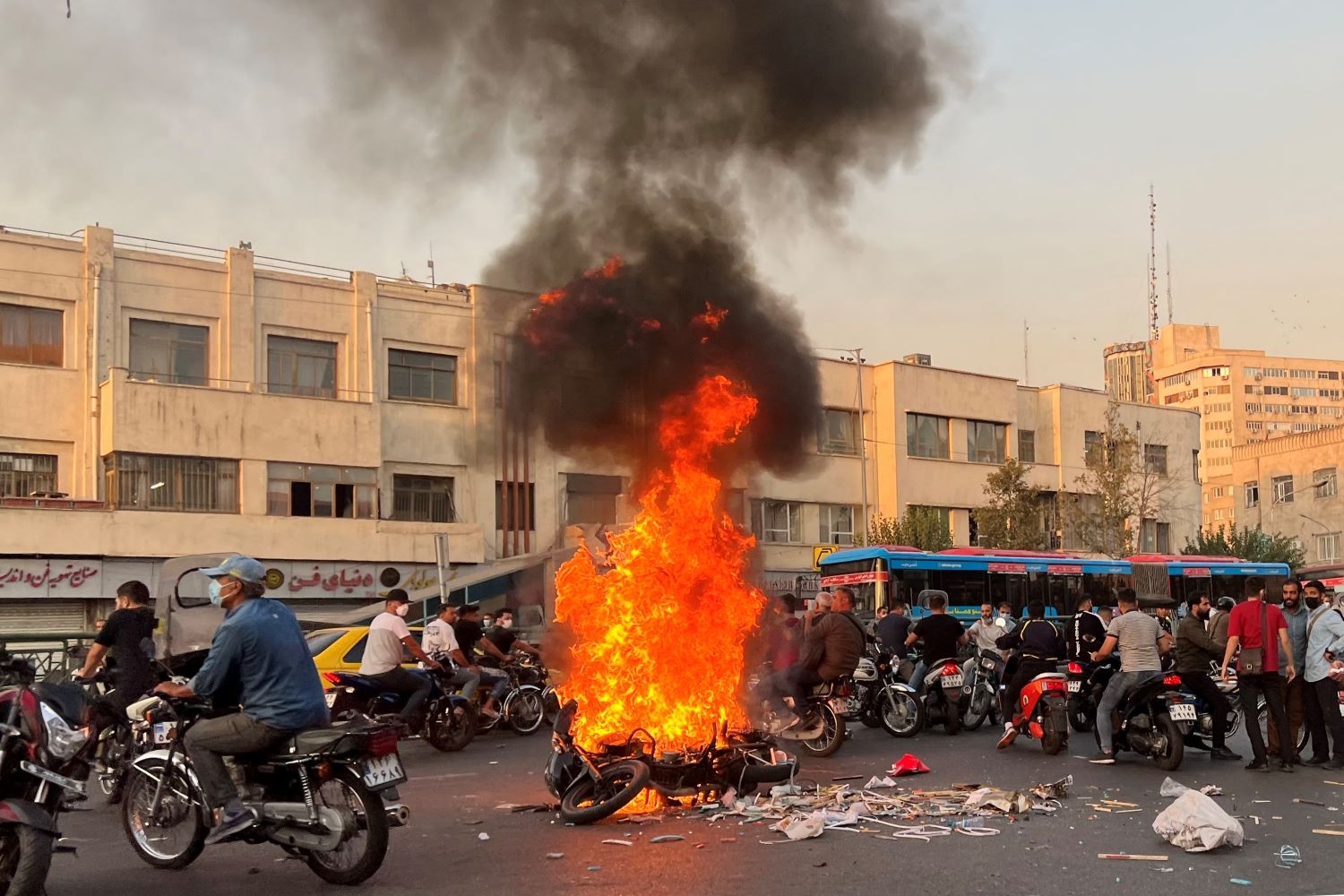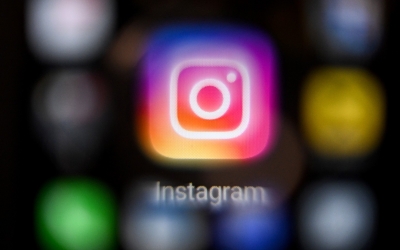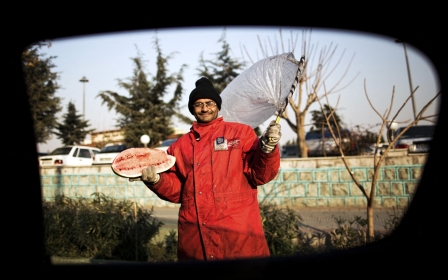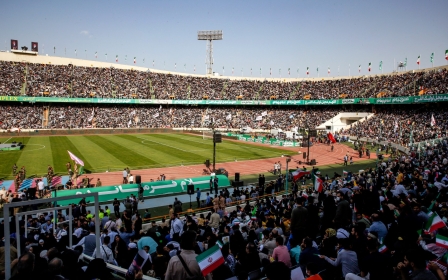Iranian press review: Crackdown increases on universities over protests

Government pressure increases on universities
Iran's government has stepped up pressure on university staff and students over support for ongoing anti-government protests on campuses, including preventing students from continuing their studies and cutting the salaries of professors.
University students have continued organising sit-ins on campuses, despite a decline in the number and spread of demonstrations on the streets as a result of a government crackdown.
Protests began in September 2022 after the death in custody of a young Kurdish woman, Mahsa Amini, over "inappropriate hijab".
'The payment cut will not scare me...my compatriots are paying a much higher price to reach their rightful demands'
- Azin Movahed, music professor
Student sources have reported over 40 students at the Amirkabir University of Technology in the capital Tehran were suspended, banned from entering the campus and forced to leave their dormitories over involvement in protests.
New MEE newsletter: Jerusalem Dispatch
Sign up to get the latest insights and analysis on Israel-Palestine, alongside Turkey Unpacked and other MEE newsletters
In the northern city of Babol, at least 20 students face the same punishment.
Activists at Tehran university, the Tehran University of Art, and the Sharif University of Technology have also reportedly been suspended. The exact number of students affected has yet to be determined.
Meanwhile, officials have threatened professors who threw their weight behind the demonstrations.
Since late November, at least three professors have been banned from entering the Shahid Beheshti University campuses. According to student sources, these professors were Negar Zilabi, Mohammad Ragheb, and Islam Nazemi.
Moreover, the higher education ministry penalised several professors with pay cuts.
Azin Movahed, a music professor at the Tehran University of Art, reported that her salary was cut by an order from the university officials.
"The payment cut will not scare me...my compatriots are paying a much more painful and higher price to reach their rightful demands," Movahed wrote on Instagram.
Since the beginning of the 2022 anti-government demonstrations, university campuses have become the epicentre of confrontation between dissident academics and the authorities.
Ayatollahs urge economic reform
Four high-ranking ayatollahs have urged the government to find a solution for the country's economic crisis in separate meetings that Parliament Speaker Mohammad Bagher Ghalibaf held with the clerics in the holy city of Qom.
Local media reported that the four conservative and hardline grand ayatollahs, Naser Makarem Shirazi, Jafar Sobhani, Hossein Noori Hamedani, and Abdollah Javadi-Amoli, warned about the worsening economic situation in Iran.
Since his victory in the 2021 presidential elections, conservative President Ebrahim Raisi has enjoyed the full support of conservative Shia religious leaders - however, the rapid devaluation of the national currency in recent weeks has brought his government under severe criticism.
On 27 December, Iran's national currency hit new all-time lows against the US dollar, with one dollar selling for about 430,000 Iranian rials on the unofficial market.
"The economic situation has become a big unsolvable problem for the people," the Ettela'at daily quoted Ayatollah Naser Makarem Shirazi as saying.
"They are sensitive about the cultural and economic situation and looking forward to a change."
In one of the meetings in Qom, Grand Ayatollah Sobhani criticised the parliament speaker for unfulfilled promises.
"It's been a long time, you have promised to solve people's economic issues, but you have not fulfilled those promises; the ones you made true were tiny," the daily quoted Sobhani as saying.
US sanctions related to Iran's nuclear programme and widespread corruption are the leading causes of the economic crisis in the oil-rich country.
Raisi hit by Instagram backlash
A blue tick appeared on President Ebrahim Raisi's official Instagram account last week even after his government curbed access to Instagram and WhatsApp in the wake of anti-government protests, provoking accusations of hypocrisy.
The Arman Meli daily accused Raisi and his government of double standards in banning social networks for ordinary Iranians but using the same platforms themselves.
"Since the presidential election [in 2021] until now, Ebrahim Raisi has shown contradictory comments and actions regarding the internet," wrote the daily.
"During the election campaigns, he was insisting that his rivals spread false news about his plans to add more restrictions on the internet to make the voters scared of him - but in November, he said that the restrictions his government imposed were in response to the enemies' attempt to disrupt security in the country."
The daily also made a list of ministers and high-ranking politicians in Raisi's government who used Twitter, the social media platform officially banned in Iran since the 2009 Green Movement protests.
Foreign Minister Hossein Amir Abdollahian, foreign ministry spokesman Nasser Kanaani, Oil Minister Javad Owji, Cultural Heritage Minister Ezatollah Zarghami and Deputy President Mohammad Jamshidi are among high-ranking politicians who have an active presence on Twitter.
Many Iranian dissidents have faced harsh punishments for their posts on Twitter and Instagram.
*Iranian press review is a digest of news reports not independently verified as accurate by Middle East Eye.
Middle East Eye delivers independent and unrivalled coverage and analysis of the Middle East, North Africa and beyond. To learn more about republishing this content and the associated fees, please fill out this form. More about MEE can be found here.






